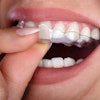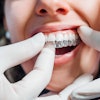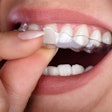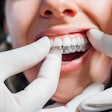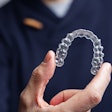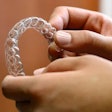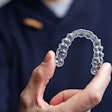
The Florida Board of Dentistry has closed its investigation into SmileDirectClub's business model and marketing practices, landing the clear-aligner company another victory against traditional orthodontics.
The board closed its investigation, which was requested by the American Association of Orthodontists. Closing the inquiry proves that SmileDirectClub operates in full compliance of Florida law, and operating its SmileShops or the way it markets its products and services doesn't constitute it engaging in corporate dentistry, according to a company release issued on February 18.
"It is great to have the support of dental boards like the State of Florida Dental Board, who welcome the access to care that today's technology and our platform creates," said Susan Greenspon Rammelt, SmileDirectClub's chief legal officer and executive vice president of business affairs.
The Nashville-based dental service organization has been making waves and headlines, from partnering with Walmart to expanding into Hong Kong to announcing it will sell its aligners directly to dentists and orthodontists, since the start of 2020.
The teledentistry business also has managed to forge ahead amid calls in January from U.S. lawmakers, most of whom are doctors and dentists, for the U.S. Food and Drug Administration and the Federal Trade Commission to investigate the company for misleading consumers and harming patients.
SmileDirectClub remains steady as it continues to face lawsuits and also a more aggressive push by California to further tighten teledentistry. If a bill in California is signed into law, it would require dentists to conduct in-person visits with patients before they receive any services remotely. In September 2019, California became the first state in the U.S. to pass a teledentistry law requiring x-rays and other steps be taken before patients can undergo treatment from providers, such as SmileDirectClub. The law was supported by the California Dental Association and commended by the ADA. The ADA, as well as local organizations, have warned about the dangers of direct-to-consumer orthodontics and have filed suits against the company mostly over how its teledentistry platform should be regulated.
SmileDirectClub has long claimed that its business model is misunderstood and that the claims dental boards in more than a dozen states have made about its practices are not supported by any evidence.
The company provides marketing and administrative support services and a teledentistry platform to state-licensed dentists and orthodontists. SmileDirectClub and its affiliated network of doctors take regulatory compliance seriously. Doctors affiliated with the company are subject to and compliant with the standards of care required in each of the states or countries where its teledentistry platform is available, according to SmileDirectClub.
The company's clear aligners are available in the U.S., Canada, Australia, New Zealand, U.K, Ireland, Germany, and Hong Kong.
"Our company seeks to cooperate with and provide information to state dental boards to educate their members as to how our teledentistry platform works and demonstrate that it is the state-licensed dentists who are responsible for all aspects of clinical care," Greenspon Rammelt said.

